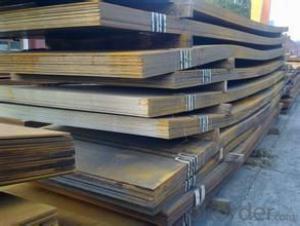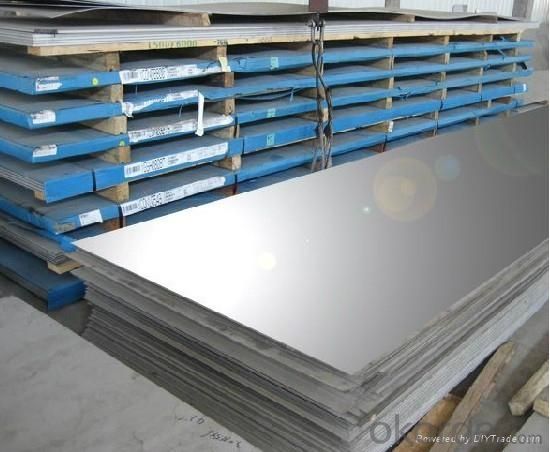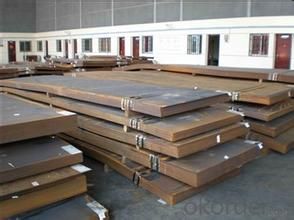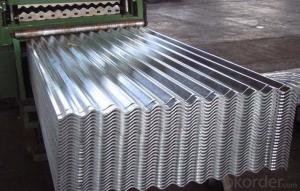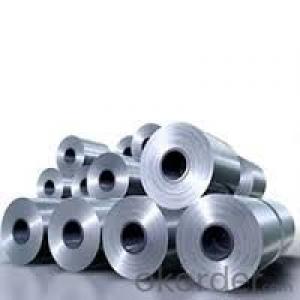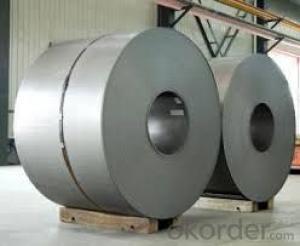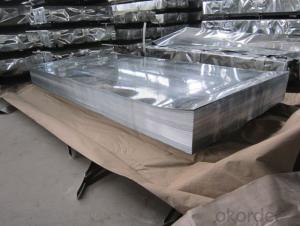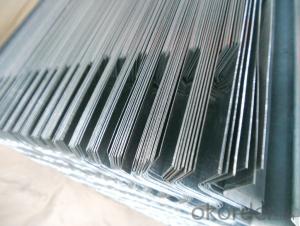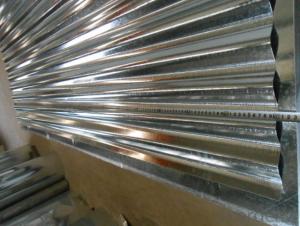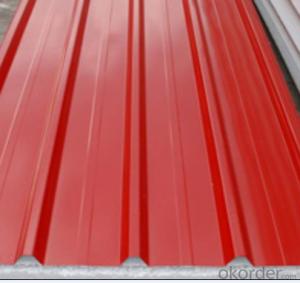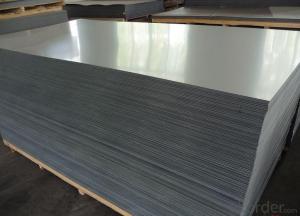HRC steel plate
- Loading Port:
- China Main Port
- Payment Terms:
- TT OR LC
- Min Order Qty:
- -
- Supply Capability:
- -
OKorder Service Pledge
Quality Product, Order Online Tracking, Timely Delivery
OKorder Financial Service
Credit Rating, Credit Services, Credit Purchasing
You Might Also Like
Quick Details
| Standard: | Grade: | Thickness: | |||
| Place of Origin: | Brand Name: | Type: | |||
| Technique: | Surface Treatment: | Application: | |||
| Special Use: | Width: | Length: | |||
| Color: |
Packaging & Delivery
| Packaging Detail: | mill's standard packing (usually bare with 2 to 6 strips |
| Delivery Detail: | 20-45 days for customized order, immediate shipment for stock |
Specifications
mild steel plate size
thickness:1.5-100mm
width:1000-2000mm
length:1-12m
material:S235jr S275jr S355jr SS400 Q235
- Q: Can steel sheets be used for furniture manufacturing?
- Yes, steel sheets can be used for furniture manufacturing. Steel is a versatile material that offers strength, durability, and a sleek appearance, making it suitable for various furniture applications such as tables, chairs, cabinets, and shelves. Steel sheets can be shaped, welded, and finished to create contemporary and modern furniture designs.
- Q: How do steel sheets perform in marine environments?
- Steel sheets perform well in marine environments due to their high strength and corrosion resistance properties. The presence of saltwater and high levels of moisture in marine environments can cause significant damage to many materials, but steel sheets are specifically designed to withstand these conditions. One of the key factors that contribute to the performance of steel sheets in marine environments is their corrosion resistance. Steel sheets are typically coated with zinc or other protective coatings, such as epoxy or galvanized coatings, which act as a barrier against corrosion. These coatings prevent the steel from coming into direct contact with saltwater and moisture, reducing the risk of rust and deterioration. Additionally, the high strength of steel sheets makes them highly durable in marine environments. They can withstand the harsh conditions, including waves, strong winds, and impact from debris. This strength ensures that steel sheets can maintain their structural integrity and offer long-term performance. Furthermore, steel sheets are also known for their fire resistance, which is crucial in marine environments where safety is of utmost importance. Steel has a high melting point and does not contribute to the spread of fire, making it a reliable choice for marine applications. However, it is important to note that even with their excellent performance, steel sheets may still require regular maintenance and inspection in marine environments. This includes monitoring for signs of corrosion, repairing or replacing damaged coatings, and addressing any potential issues promptly to ensure their continued performance. In conclusion, steel sheets are a reliable choice for marine environments due to their corrosion resistance, high strength, and fire resistance. They can withstand the challenging conditions of saltwater, moisture, and impact, making them an ideal material for various marine applications.
- Q: How do steel sheets compare to other materials like aluminum or copper?
- There are numerous advantages to using steel sheets over materials such as aluminum or copper. Firstly, steel is significantly stronger and more durable than both aluminum and copper. This makes steel sheets perfect for applications that require high strength and the ability to resist wear and tear, such as construction, automotive manufacturing, and industrial machinery. Secondly, steel sheets have a higher melting point than aluminum and copper. As a result, steel can withstand higher temperatures without deforming or melting, making it suitable for applications involving exposure to high heat or fire. Additionally, steel sheets are more cost-effective than both aluminum and copper. Steel is readily available and relatively inexpensive compared to these other materials. This makes steel sheets a more economical choice for large-scale applications that require a substantial amount of material. Furthermore, when properly coated or treated, steel sheets have excellent corrosion resistance properties. In contrast, aluminum and copper are more susceptible to corrosion and require additional protective measures. This makes steel sheets a superior choice for outdoor or marine applications where exposure to moisture and harsh environments is a concern. Lastly, steel sheets are highly recyclable, making them a more sustainable choice compared to aluminum and copper. Steel is one of the most recycled materials globally, with a recycling rate of nearly 90%. This reduces the environmental impact and conserves natural resources. In summary, steel sheets offer exceptional strength, durability, heat resistance, cost-effectiveness, corrosion resistance, and recyclability compared to materials like aluminum or copper. These qualities make steel sheets a versatile and reliable choice for a wide range of applications across various industries.
- Q: What are the weight considerations for steel sheets?
- Weight considerations for steel sheets vary depending on the specific application and desired outcomes. Here are a few key points to consider: 1. Thickness: The thickness of a steel sheet greatly affects its weight. Thicker sheets generally weigh more, while thinner sheets weigh less. It is important to choose a thickness that meets the structural requirements of the project while considering weight limitations. 2. Strength requirements: Different applications require steel sheets of varying strength levels. High-strength steel sheets are often thicker and heavier, while lower strength sheets can be thinner and lighter. Understanding the strength requirements of the project is crucial in determining the appropriate weight of the steel sheets. 3. Transportation and handling: The weight of steel sheets impacts their ease of transportation and handling. Heavier sheets require more labor and equipment for lifting, loading, and unloading. Moreover, transport vehicles have weight limits that need to be considered when selecting steel sheet sizes. 4. Structural limitations: The weight of steel sheets can affect the overall structural design. In some cases, lighter sheets may be preferred to reduce the load on supporting structures. However, in other scenarios, heavier sheets may be necessary to provide the required strength and stability. 5. Cost considerations: The weight of steel sheets can also impact the overall cost of a project. Heavier sheets typically cost more due to the increased material required and the additional handling expenses. Therefore, it is essential to strike a balance between weight, cost, and performance to optimize the project's budget. Overall, weight considerations for steel sheets are crucial in determining the appropriate thickness, strength, transportation requirements, structural design, and cost-effectiveness of a project. By carefully evaluating these factors, one can select steel sheets that meet the specific needs while ensuring the optimal weight for the desired outcome.
- Q: Can the steel sheets be easily folded or creased?
- No, steel sheets cannot be easily folded or creased due to their strong and rigid nature.
- Q: What is the recommended storage method for the steel sheets?
- The recommended storage method for steel sheets is to store them in a dry and well-ventilated area. It is important to keep the steel sheets away from moisture and direct sunlight, as these factors can cause rust and degradation of the material. Stacking the sheets on pallets or racks, with sufficient spacing in between, can help prevent any potential damage. Additionally, it is advisable to cover the sheets with a protective material, such as a tarp or plastic wrap, to further safeguard them from dust and other contaminants. Regular inspection and maintenance of the storage area, as well as keeping an inventory of the sheets, can help ensure their longevity and usability.
- Q: Can steel sheets be used for roofing purposes?
- Indeed, roofing purposes can be served by steel sheets. In commercial and industrial buildings, as well as residential homes, it is common to find steel roofing sheets being utilized. These sheets are renowned for their ability to withstand harsh weather conditions, including rain, snow, and wind, thereby ensuring their longevity and durability. Moreover, steel sheets come in various profiles and finishes, enabling customization to cater to different architectural styles and design preferences. Furthermore, steel roofing possesses the advantages of being lightweight, fire-resistant, and often crafted from recycled materials, thereby presenting an environmentally friendly roofing alternative. In conclusion, the strength, versatility, and aesthetic appeal of steel sheets make them a favored option for roofing.
- Q: Can steel sheets be used for food processing equipment?
- Yes, steel sheets can be used for food processing equipment. Steel is a commonly used material in the food industry due to its durability, corrosion resistance, and ease of cleaning.
- Q: Is color steel plate the same as color steel tile?
- Some people call this product "pre roll painted steel plate" and "plastic color steel plate".Color steel products are manufacturers in continuous production line volume production, it is also called color coated steel coil. Color steel plate not only has high mechanical strength, easy molding property, but also has good decorative and corrosion resistance. Color steel plate is a new material respected by the world. With the progress of science and technology, enhance the awareness of the environment, improve people's living standards, color plate activity room shows more and more strong vitality and broad market prospects, by construction, household appliances, electronics, transportation, interior decoration, office equipment and other industries favored.
- Q: Are steel sheets suitable for architectural roofing?
- Architectural roofing can benefit greatly from the use of steel sheets. This material is known for its exceptional durability and longevity, making it an ideal option for such applications. Steel sheets possess impressive strength, enabling them to withstand even the harshest weather conditions like heavy rain, snow, and strong winds. They also offer an additional layer of safety as they are resistant to fire. Another advantage is that steel sheets are lightweight, which makes them easier to install and reduces the burden on the structure. Additionally, architects can choose from a wide range of colors and finishes to achieve the desired aesthetic appearance for the building. In summary, steel sheets are an excellent choice for architectural roofing due to their numerous advantages, making them suitable for both residential and commercial projects.
Send your message to us
HRC steel plate
- Loading Port:
- China Main Port
- Payment Terms:
- TT OR LC
- Min Order Qty:
- -
- Supply Capability:
- -
OKorder Service Pledge
Quality Product, Order Online Tracking, Timely Delivery
OKorder Financial Service
Credit Rating, Credit Services, Credit Purchasing
Similar products
Hot products
Hot Searches
Related keywords
